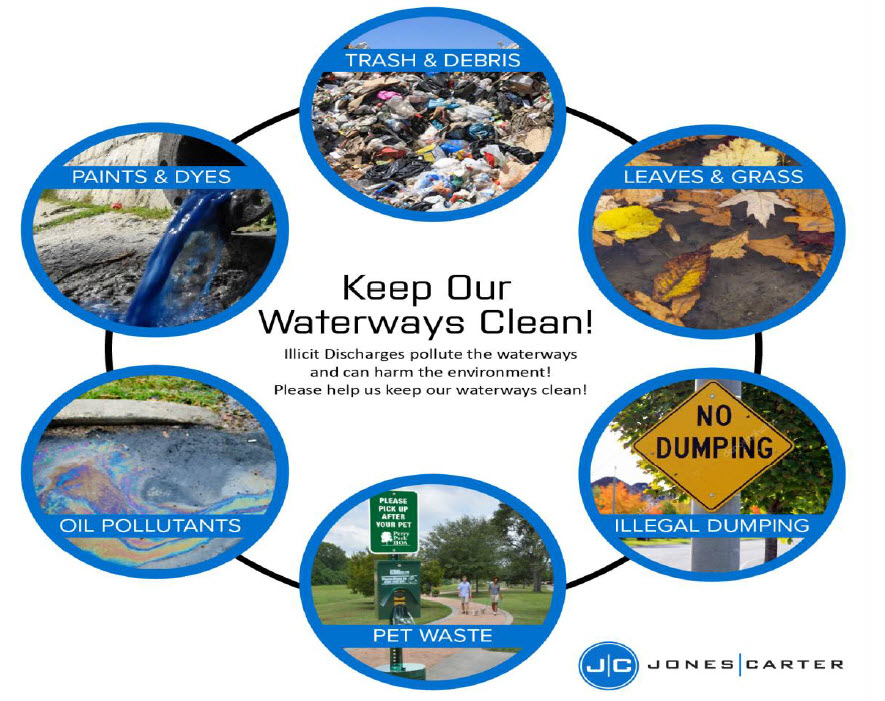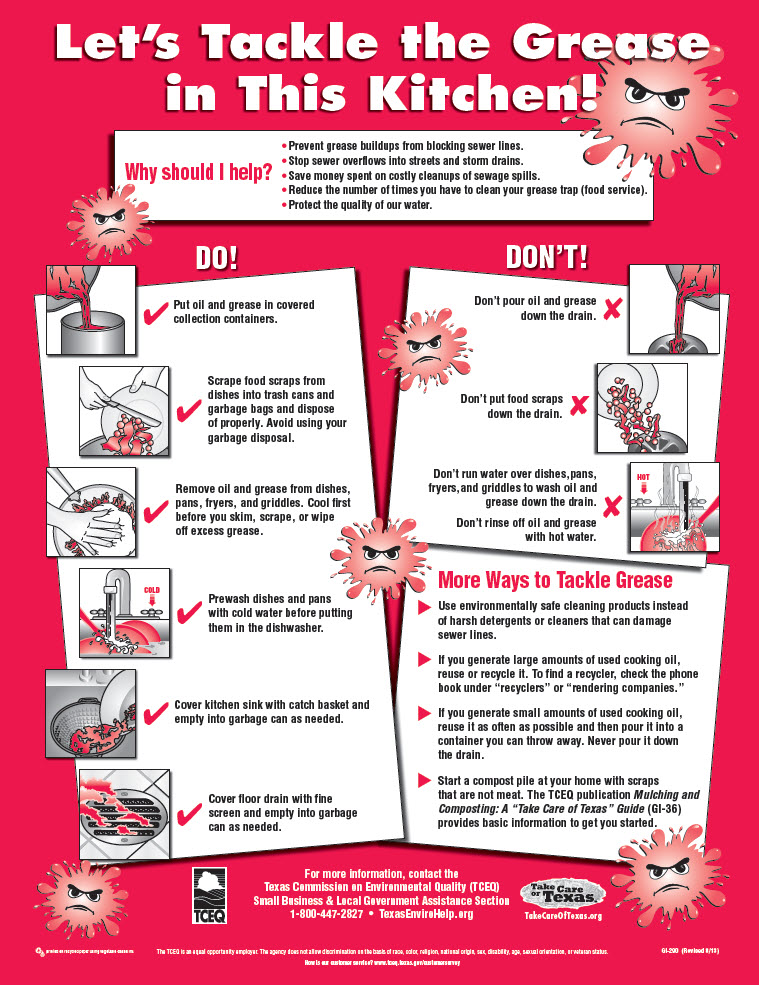How To Prevent Stormwater Pollution
What is stormwater?
Stormwater is water from rain or melting snow that does not soak into the ground. It flows from rooftops, over paved areas, bare soil, and sloped lawns. As it flows, stormwater runoff collects and transports soil, animal waste, salt, pesticides, fertilizers, oil and grease, debris and other potential pollutants.
What is the problem?
Rain and snowmelt wash pollutants from streets, construction sites, and land into storm sewers and ditches. Eventually, the storm sewers and ditches empty the polluted stormwater directly into streams and rivers without prior purification or treatment. This is stormwater pollution.
Polluted stormwater degrades our lakes, rivers, wetlands and other waterways. Nutrients such as phosphorous and nitrogen can cause the overgrowth of algae, resulting in oxygen depletion in waterways. Toxic substances from motor vehicles and careless application of pesticides and fertilizers threaten water quality and can kill fish and other aquatic life. Bacteria from animal wastes and improper connections to storm sewer systems can make lakes and waterways unsafe for wading, swimming and fish consumption. Eroded soil is a pollutant as well. It clouds the waterway and interferes with the habitat of fish and plant life.
Tips to Prevent Stormwater Pollution
- Cover and contain topsoil and mulch during installation.
- Pick up animal waste.
- Reconsider using toxic asphalt sealers, seal cracks only.
- Do not drain swimming pools into storm drains or road ditches.
- Reduce winter salt application.
- Compost or mulch leaves and yard debris rather than hauling to dumps.
- Dispose of automotive fluids appropriately.
- Remove litter from streets, sidewalks, and stormgates adjacent to your property.
- Sweep litter and debris from driveways and parking lots rather than hosing debris into storm drains.
- Water the lawn, not the sidewalk and driveway.
- Reduce paved surfaces.
- Triple rinse and recycle empty pesticide and fertilizer containers.
- Avoid using chemicals near waterways or storm drains.
- Clean up spills immediately and properly dispose of cleanup materials.
- Avoid spraying pesticides/fertilizers in windy conditions or when rain is in the forecast.
- Fill pesticide/fertilizer tanks on a gravel surface, away from storm drains, sewers or ditches.


